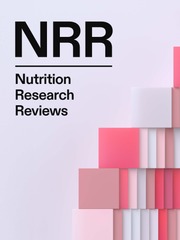No CrossRef data available.
Article contents
Effect of vegetable consumption on risk of gastric cancer: a systematic review and multi-level meta-analysis of prospective studies
Published online by Cambridge University Press: 20 February 2024
Abstract
Vegetables are known to be beneficial to human health, but the association between vegetable consumption and gastric cancer remains uncertain. To synthesise knowledge about the relationship between vegetable group consumption and gastric cancer risk, update present meta-analyses and estimate associations between vegetable consumption and gastric cancer risk based solely on prospective studies, we perform a PRISMA-compliant three-level meta-analysis. Systematic search identified thirteen prospective studies with fifty-two effect sizes that met all inclusion criteria and no exclusion criteria for our meta-analysis. Pooled risk ratios (RRs) showed a positive association between high vegetable consumption and low gastric cancer risk (pooled RR 0·93, 95% confidence interval 0·90–0·97, P = 0·06). In moderator analyses for indicators of gender, region and quantity of vegetable intake, there was no significant difference between subgroups. However, the effect became significant in populations with lower than the minimum risk exposure level (TMREL) of vegetable consumption (P < 0·05). Higher vegetable intake is associated with a decreased risk of gastric cancer. This effect may be limited to specific populations, such as ones with lower vegetable consumption. Evidence from our study has important public health implications for dietary recommendations.
Keywords
- Type
- Review Article
- Information
- Copyright
- © The Author(s), 2024. Published by Cambridge University Press on behalf of The Nutrition Society





